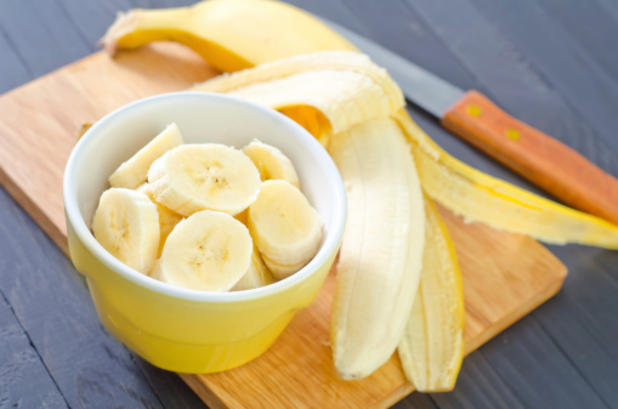
Did you know that dietary potassium, found in fruits and vegetables like bananas, sweet potatoes and spinach can help control blood pressure?
Research shows that too little potassium can increase your risk of hypertension and stroke. But studies also show that people who have high blood pressure may be able to lower their systolic (that’s the top number) blood pressure by eating healthy foods rich in potassium.
How potassium helps is becoming clearer, according to a new study published in the April issue of the American Journal of Physiology — Endocrinology and Metabolism. Researchers undertook a review of previous studies that investigated the effects of dietary sodium (salt) and potassium on high blood pressure, including studies, which showed people who had higher consumption of potassium experienced lower levels of blood pressure regardless of how much sodium they consumed. They also looked at recent laboratory studies which suggest that there is a close relationship between potassium and sodium.
They concluded that, while reducing salt intake is important for lowering blood pressure increasing the intake of dietary potassium “may have an equally important effect on hypertension,” says lead author Alicia McDonough, PhD, professor of cell and neurobiology at the Keck School of Medicine of the University of Southern California.
About 75 million Americans (or one in three adults) have high blood pressure, which can damage your arteries, heart, brain and kidneys.
For years studies have linked dietary patterns, particularly salt, with blood pressure for years. This led the U.S. National Institutes of Health (NIH) to develop the lower-salt DASH diet in 1992, to help us lower salt in our diet.
Too much sodium interferes with your kidney’s ability to remove excess fluid from your blood. This strains the arterial walls, causing them to thicken, which narrows the space inside the blood vessels and raises blood pressure. But potassium helps the kidneys excrete salt and water, almost like a diuretic, according to the authors of the new study.
Adults should strive for 4,700 mg of potassium every day. Click here for a list of foods high in potassium. But before you invest in potassium supplements, talk with your physician. Too much potassium raises the risk of:
- Kidney damage and possible kidney failure
- Muscular weakness and possible temporary paralysis
- Red blood cell and tissue damage
- Abnormal heart rhythm (cardiac arrhythmia), which can lead to a cardiac arrest
Western diets are generally higher in sodium than potassium. This means you’ll have to put in a little effort to fit high-potassium foods into your daily routine. Here are a few examples:
- Beans/lentils: lentils, lima, navy (baked), lima, peas (dried)
- Fruits: apricots, avocadoes, bananas, cantaloupe, nectarines, oranges, raisins, tomatoes
- Meat/poultry: beef (ground), turkey
- Nuts/Seeds: almonds, cashews, hazelnuts, pumpkin seeds, sunflower seeds
- Seafood: haddock, perch, salmon
- Vegetables: broccoli, Brussels sprouts, spinach, sweet potatoes, white potatoes
For more help controlling your blood pressure, work with your MDVIP-affiliated doctor. As part of the MDVIP Wellness Program, your doctor can customize a wellness plan for you and your needs. Don’t have an MDVIP-affiliated doctor? Find one near you by clicking here »

